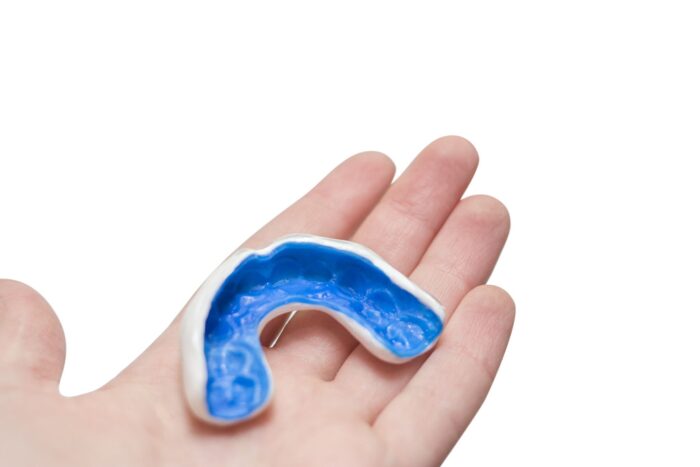A mouthguard is a device you place in your mouth to protect your teeth. Whether it is from sports injuries or grinding your teeth, mouthguards provide a soft barrier for your teeth and soft tissues.
There are several types of mouthguards that you can use. However, some provide more protection than others. You can buy a stock mouthguard or a boil-and-bite mouthguard online or from most sporting goods stores. Although these mouthguards do provide protection, they are not the best. For the highest quality mouthguard, you should talk to your dentist about a custom mouthguard.
Your dentist will take an impression of your mouth. Then, they will create a mouthguard that fits your mouth perfectly. The quality of your mouthguard is better than any product that you can buy in the store.
It is essential to wear a mouthguard to guard against damage.

Protect Your Teeth During Sports and Other Activities
If you play contact sports or intense activities, you should consider wearing a mouthguard. Sports, such as basketball or soccer, carry a risk of dental trauma. For example, playing soccer is a great way to stay in shape and be a part of your community. However, injuries are common. Even with experienced players, you can get an elbow to the face, or you can get in the way of a hard-kicked soccer ball.
When you undergo dental trauma, you can experience several side effects. You can chip or break your teeth. Additionally, it is possible to have a tooth get knocked out. Some people who have dental trauma also experience discoloration in their teeth that chemical whitening treatments cannot alter.
If you wear a mouthguard, you can reduce your chances of severe dental trauma. The materials of a mouthguard cushion your teeth, minimizing the damage from a stray soccer ball. In addition, a mouthguard will keep your jaws from clacking together, which can break your teeth. Wearing a mouthguard can also decrease the likelihood of a concussion.
Bruxism (Teeth Grinding)
One way you can use a mouthguard is to minimize damage from bruxism or teeth grinding. Typically, people grind their teeth in their sleep, which may be a sign of a more severe sleep condition. However, some patients grind their teeth during the day when they are stressed or anxious.
In the short term, grinding your teeth can cause headaches and tension. You are also at risk of chipping or breaking your teeth. This is because your teeth cannot handle the added pressure from grinding. Over time, your teeth can wear down to almost nothing. Bruxism will reshape your teeth, making them less efficient for eating.
To avoid damage, you can use a mouthguard. The soft plastic material will cushion your teeth and protect the ridges. Additionally, a mouthguard will equalize the pressure across all of your teeth. Rather than the pressure sitting on the ridges of your teeth, all of your teeth will hold equal stress. This reduces the chances of you breaking your teeth. A mouthguard can also help eliminate headaches and tension in your muscles.
